
Kód: 16305308
No Fear of Global Warming? Temporal - Spatial Biases and Response Engagement into Fear Environmental Appeal
Autor Ilaria Patulli
Master's Thesis from the year 2013 in the subject Communications - Ethics in the Media, University of Amsterdam (Graduated School of Communication), language: English, abstract: This Master's Thesis explores Spatial and Temporal d ... celý popis
- Jazyk:
 Angličtina
Angličtina - Vazba: Brožovaná
- Počet stran: 56
Nakladatelství: Grin Publishing, 2017
- Více informací o knize

Mohlo by se vám také líbit
-

HEYDAYS
567 Kč -

Manpower Problem in Kuwait
4190 Kč -

Patient Monitoring System
1255 Kč -

Voyageur Francois, Ou La Connoissance de l'Ancien Et Du Nouveau Monde Tome 12
937 Kč -

Bedřich Štěpánek
391 Kč -

Apuntes de armonía
440 Kč -

Lindau (Puzzle)
767 Kč
Dárkový poukaz: Radost zaručena
- Darujte poukaz v libovolné hodnotě a my se postaráme o zbytek.
- Poukaz se vztahuje na celou naši nabídku.
- Elektronický poukaz vytisknete z e-mailu a můžete ihned darovat.
- Platnost poukazu je 12 měsíců od data vystavení.
Více informací o knize No Fear of Global Warming? Temporal - Spatial Biases and Response Engagement into Fear Environmental Appeal
Nákupem získáte 133 bodů
 Anotace knihy
Anotace knihy
Master's Thesis from the year 2013 in the subject Communications - Ethics in the Media, University of Amsterdam (Graduated School of Communication), language: English, abstract: This Master's Thesis explores Spatial and Temporal dimensions of psychological distance into fear environmental campaigns. In order to examine factors which may increase individual's engagement in climate change issue, different levels of spatial (Local - Global) and temporal (Near Future - Future) dimensions of psychological distance are analyzed into fear campaigns, using Witte's EPPM principles. In particular, it was supposed that individual's perceived vulnerability and perceived severity of the threat mediate this relationship. In the study, three main assumption were examined. The first one proposed that Local messages, compared to Global, were more effective in increasing individual's perceived vulnerability, and that this would increase individual's engagement with the climate issue. The second conjecture started with an inquisition concerning whether Local or Global message lead to more severity, assuming that the level of increased perceived severity would increase individual's engagement with climate change. The third hypothesis supposed that the use of a Near Future temporal representation, in comparison to a distant Future representation, was more effective in increasing individual's perceived vulnerability and severity, and this would lead to a higher engagement with the issue. An online experiment with a 2 (Space perspectives: Local - Global) x 2 (Time perspective: Near Future - Future) within subjects design, was performed in order to explore the effects of the different conditions on individual's perceived Vulnerability, Severity and Engagement. The overall analysis of the model revealed that only Vulnerability and Severity have a significant effect on the Engagement. Concerning Spatial and Temporal dimensions the analysis was not significant. Thus, Temporal and Spatial differences had no significant effects in influencing individual's perceived Vulnerability, Severity and Engagement. Limitations, suggestions and further conclusions are given in the final discussion.
 Parametry knihy
Parametry knihy
Zařazení knihy Knihy v angličtině Society & social sciences Society & culture: general Media studies
1334 Kč
- Plný název: No Fear of Global Warming? Temporal - Spatial Biases and Response Engagement into Fear Environmental Appeal
- Podnázev: An Exploratory Experimental Study. Magisterarbeit
- Autor: Ilaria Patulli
- Jazyk:
 Angličtina
Angličtina - Vazba: Brožovaná
- Počet stran: 56
- EAN: 9783668441705
- ISBN: 3668441707
- ID: 16305308
- Nakladatelství: Grin Publishing
- Hmotnost: 94 g
- Rozměry: 210 × 148 × 3 mm
- Rok vydání: 2017
Oblíbené z jiného soudku
-

Confessions Of An Advertising Man
410 Kč -

Contagious
234 Kč -

Buyology
327 Kč -
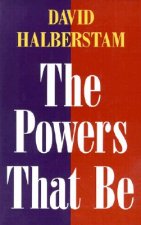
Powers That Be
734 Kč -

Amusing Ourselves to Death
399 Kč -
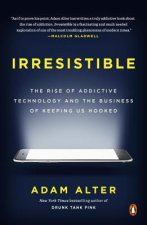
Irresistible
265 Kč -
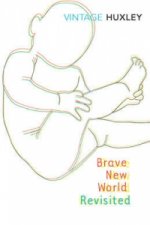
Brave new World Revisited
276 Kč -

Media and Political Process
1016 Kč -

Amusing Ourselves to Death
336 Kč -

Medium is the Massage
276 Kč -
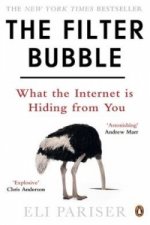
Filter Bubble
316 Kč -
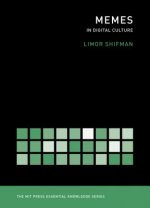
Memes in Digital Culture
365 Kč -

Pre-Code Hollywood
633 Kč -

Screen Damage - The Dangers of Digital Media for Children
699 Kč -
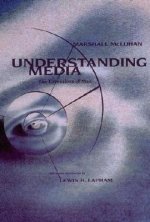
Understanding Media
991 Kč -

Game Design Deep Dive
1401 Kč -

Filling the Void
301 Kč -
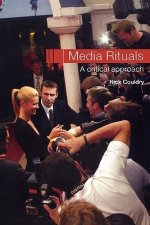
Media Rituals
1229 Kč -

Stack
1175 Kč -

To Save Everything, Click Here
306 Kč -

Hidden Persuaders
373 Kč -

Television Culture
1460 Kč -

Txtng: The Gr8 Db8
278 Kč -

Media Student's Book
1282 Kč -

Spotify Teardown
472 Kč -

Internet Does Not Exist
473 Kč -
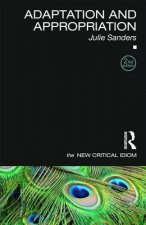
Adaptation and Appropriation
847 Kč -

American Silent Film
553 Kč -

Understanding Esports
1416 Kč -

Proteus Paradox
945 Kč -

Four Arguments for the Elimination of Television
413 Kč -

Tubes
303 Kč -

Imagination and Interpretation
412 Kč -

Hollywood and the CIA
1641 Kč -

Social Organism
475 Kč -
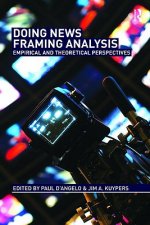
Doing News Framing Analysis
1852 Kč -

Persuasive Games
960 Kč -

Taking South Park Seriously
893 Kč -

Remediation
849 Kč -
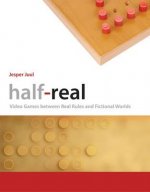
Half-Real
746 Kč -

Pola Negri
997 Kč -

Field Guide to Lies
396 Kč -

Running the Show
1265 Kč -

Scriptwriting for Film, Television and New Media
1230 Kč -
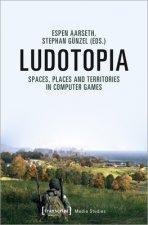
Ludotopia - Spaces, Places, and Territories in Computer Games
895 Kč -

Screenwise
1008 Kč -

Beyond Powerful Radio
1864 Kč -

Dexter
740 Kč -

Gramophone, Film, Typewriter
814 Kč
Osobní odběr Praha, Brno a 12903 dalších
Copyright ©2008-24 nejlevnejsi-knihy.cz Všechna práva vyhrazenaSoukromíCookies



 Vrácení do měsíce
Vrácení do měsíce 571 999 099 (8-15.30h)
571 999 099 (8-15.30h)